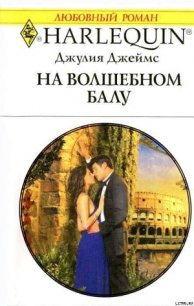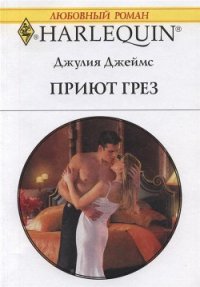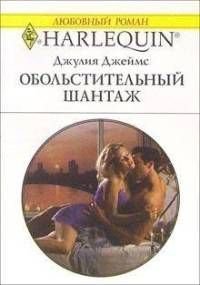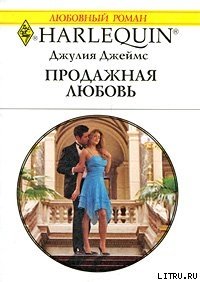Julia Ward Howe - Richards Laura E. (бесплатная регистрация книга TXT) 📗
With scanty illuminations
In an alphabet of woe.
But while I am searching, scanning
A lesson none ask to hear,
My life writeth out thy sentence
Divinely just and dear.
J. W. H.
The war was nearly over, and all hearts were with Grant and Lee in their long duel before Richmond. Patriotism and philosophy together ruled our mother's life in these days; the former more apparent in her daily walk among us, the latter in the quiet hours with her Journal.
The Journal for 1865 is much fuller than that of 1864; the record of events is more regular, and we find more and more reflection, meditation, and speculation. The influence of Kant is apparent; the entries become largely notes of study, to take final shape in lectures and essays.
"A morning visit received in study hours is a sickness from which the day does not recover. I can neither afford to be idle, nor to have friends who are so."
"Man is impelled by inward force, regulated by outward circumstance. He is inspired from within, moralized from without.... A man may be devout in himself, but he can be moral only in his relation with other men...."
"Early to Mary Dorr's, to consult about the Charade. Read Kant and wrote as usual. Spent the afternoon in getting up my costumes for the Charade. The word was Au-thor-ship.... Authorship was expressed by my appearing as a great composer, Jerry Abbott performing my Oratorio—a very comical thing, indeed. The whole was a success."
No one who saw the "Oratorio" can forget it. Mr. Abbott, our neighbor in Chestnut Street, was a comedian who would have adorned any stage. The "book" of the Oratorio was a simple rhyme of Boston authorship.
"Abigail Lord,
Of her own accord,
Went down to see her sister,
When Jason Lee,
As brisk as a flea,
He hopped right up and kissed her."
With these words, an umbrella, and a chair held before him like a violoncello, Mr. Abbott gave a truly Handelian performance. Fugue and counterpoint, first violin and bass tuba, solo and full chorus, all were rendered with a verve and spirit which sent the audience into convulsions of laughter.—This was one of the "carryings-on" of the Brain Club. After another such occasion our mother writes:—
"Very weary and aching a little. I must keep out of these tomfooleries, though they have their uses. They are much better than some other social entertainments, as after all they present some ?sthetic points of interest. They are better than scandal, gluttony, or wild dancing. But the artists and I have still better things to do."
"January 23. It is always legitimate to wish to rise above one's self, never above others. In this, however, as in other things, we must remember the maxim: 'Natura nil facit per saltum.' All true rising must be gradual and laborious, in such wise that the men of to-morrow shall look down almost imperceptibly upon the men of to-day. All sudden elevations are either imaginary or factitious. If you had not a kingly mind before your coronation, no crown will make a king of you. The true king is somewhere, starving or hiding, very like. For the true value which the counterfeit represents exists somewhere. The world has much dodging about to produce the real value and escape the false one."
Throughout the Journal, we find a revelation of the conflict in this strangely dual nature. Her study was, she thought, her true home; yet no one who saw her in society would have dreamed that she was making an effort: nor was she! She gave herself up entirely to the work or the play of the hour. She was a many-sided crystal: every aspect of life met its answering flash. The glow of human intercourse kindled her to flame; but when the flame had cooled, the need of solitude and study lay on her with twofold poignancy. She went through life in double harness, thought and feeling abreast; though often torn between the two, in the main she gave free rein to both, trusting the issue to God.
The winter of 1864-65 was an arduous one. She was writing new philosophical essays, and reading them before various circles of friends. The larger audience which she craved was not for the moment attainable. She was studying deeply, reading Latin by way of relaxation, going somewhat into society (Julia and Florence being now of the dancing age), and entertaining a good deal in a quiet way. In February she writes: "Much tormented by interruptions. Could not get five quiet minutes at a time. Everybody torments me with every smallest errand. And I am trying to study philosophy!"
Probably we were troublesome children and made more noise than we should. Her accurate ear for music was often a source of distress to her, as one of us can witness, an indolent child who neglected her practising. As this child drummed over her scales, the door of the upstairs study would open, and a clear voice come ringing down, "B flat, dear, not B natural!"
It seemed to the child a miracle; she, with the book before her, could not get it right: "Mamma," studying Kant upstairs behind closed doors, knew what the note should be.
"Few of us consider the wide and laborious significance of the simplest formulas we employ. 'I love you!' opens out a long vista of labor and endeavor; otherwise it means: 'I love myself and need you.'..."
"Played all last evening for Laura's company to dance. My heart flutters to-day. It is a feeling unknown to me until lately."
Now, Laura would have gone barefoot in snow to save her mother pain or fatigue; yet she has no recollection of ever questioning the inevitability of "Mamma's" playing for all youthful dancing. Grown-up parties were different; for them there were hired musicians, who made inferior music; but for the frolics of the early 'teens, who should play except "Mamma"?
On March 10, she writes: "I have now been too long in my study. I must break out into real life, and learn some more of its lessons."
Two days later a lesson began: "I stay from church to-day to take care of Maud, who is quite unwell. This is a sacrifice, although I am bound and glad to make it. But I shall miss the church all the week."
The child became so ill that "all pursuits had to be given up in the care of her." The Journal gives a minute account of this illness, and of the remedies used, among them "long-continued and gentle friction with the hand." The words bring back the touch of her hand, which was like no other. There were no trained nurses in our nursery, rarely any doctor save "Papa," but "Mamma" rubbed us, and that was a whole pharmacop?ia in itself.
At this time she gave her first public lecture before the Parker Fraternity. This was an important event to her; she had earnestly desired yet greatly dreaded it. She found the hall pleasant, the audience attentive. "When I came to read the lecture," she says, "I felt that it had a value."
"All these things in my mind point one way, viz.: towards the adoption of a profession of Ethical exposition, after my sort."
She had been asked to give a lecture at Tufts College, and says of this: "The difficulties are great, the question is to me one of simple duty. If I am sent for, and have the word to say, I should say it."




